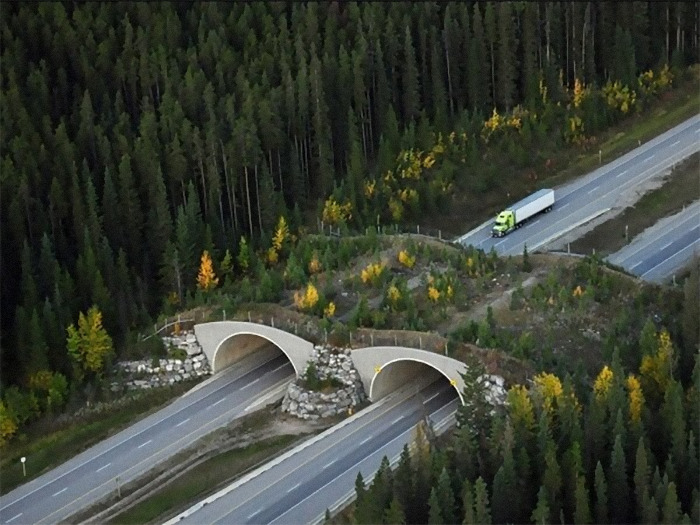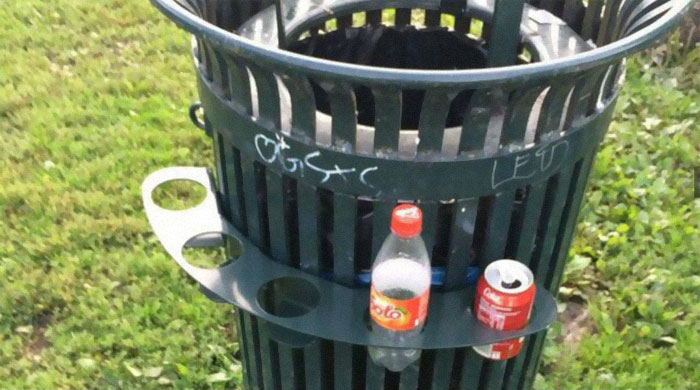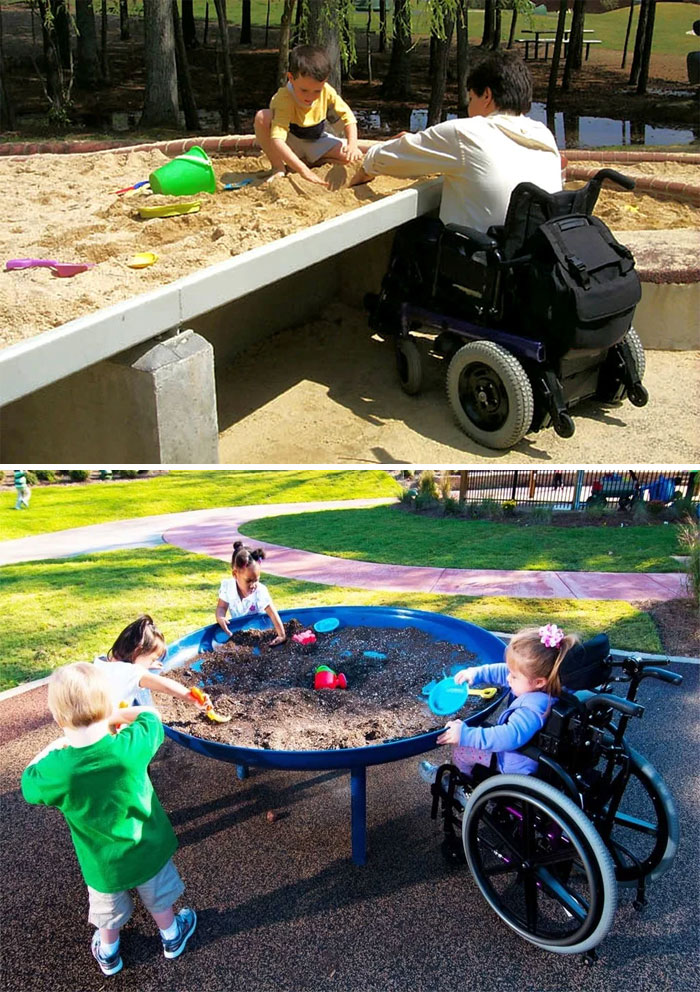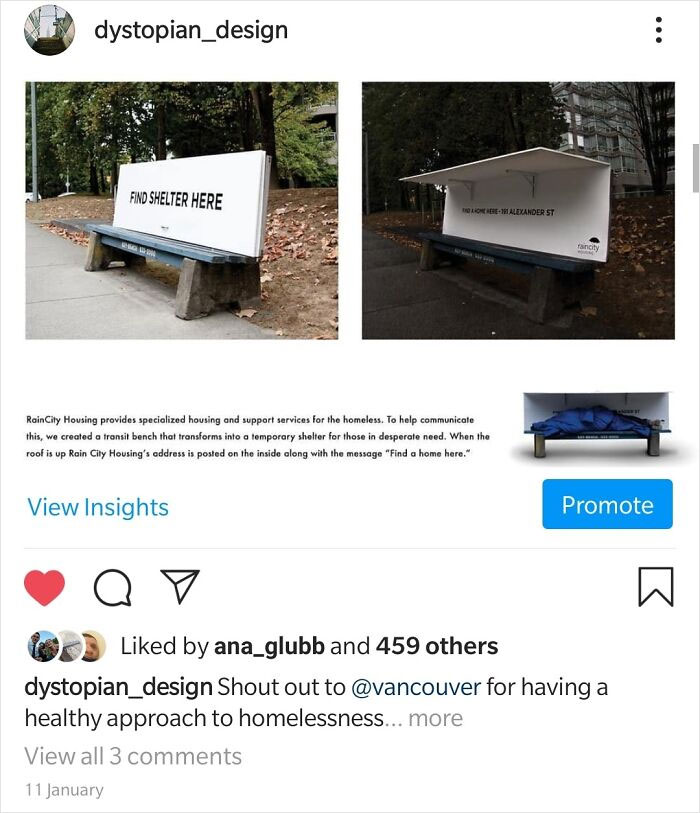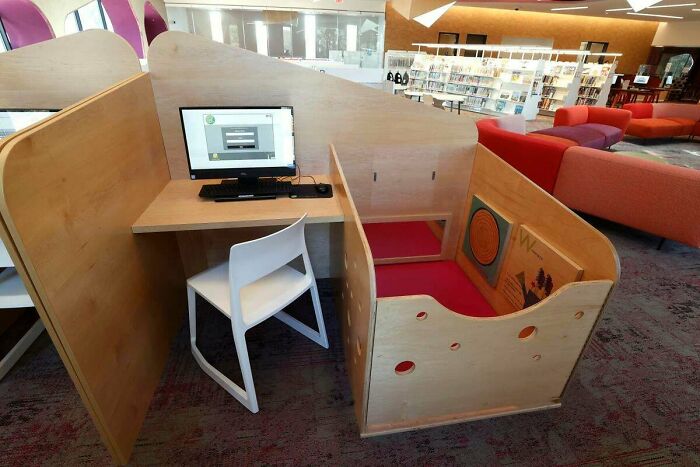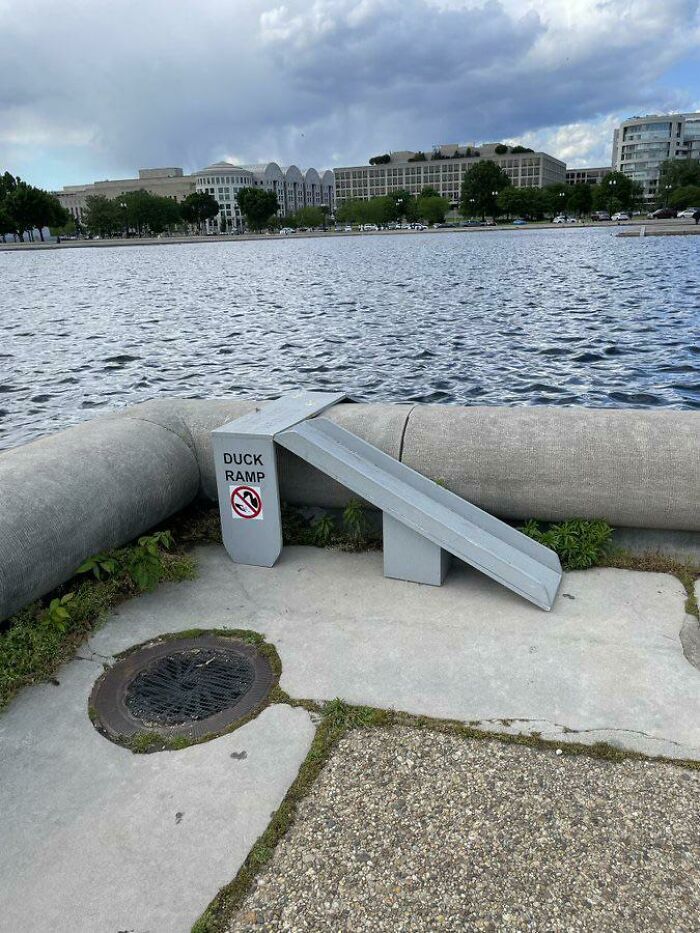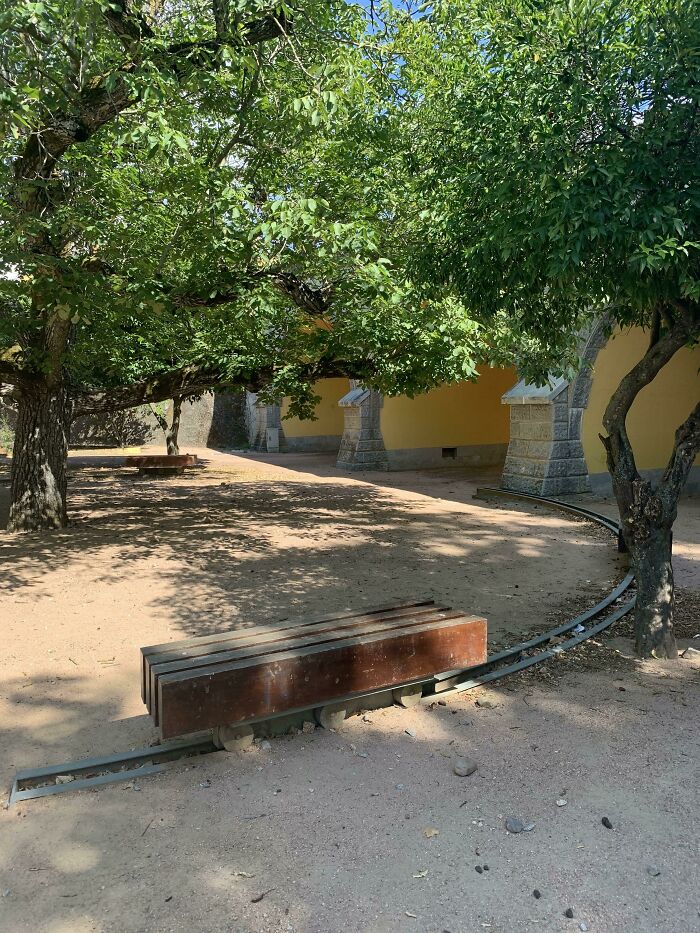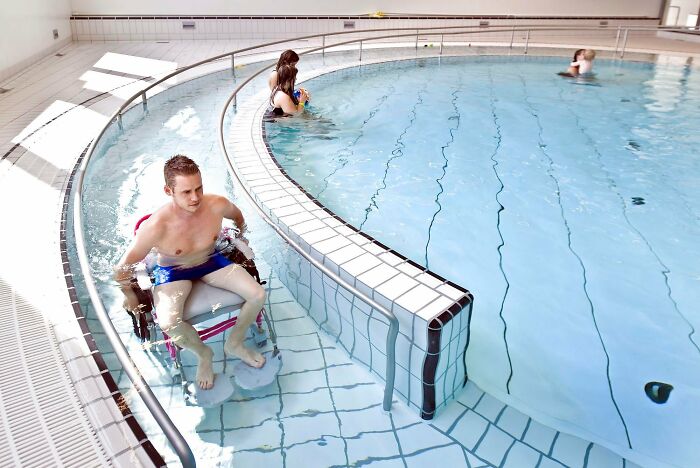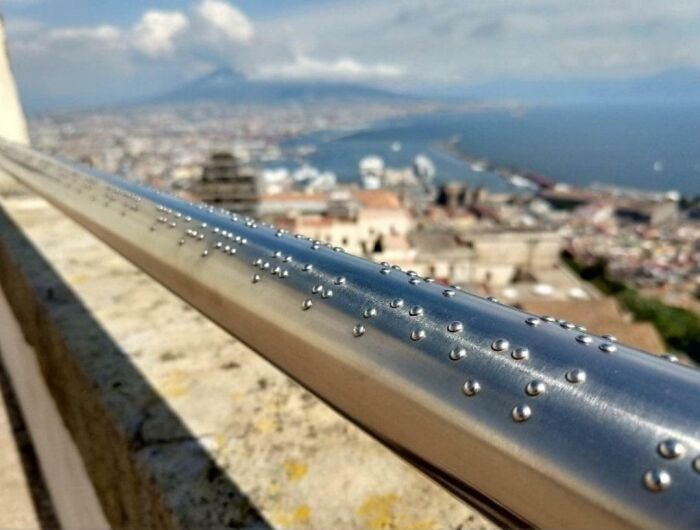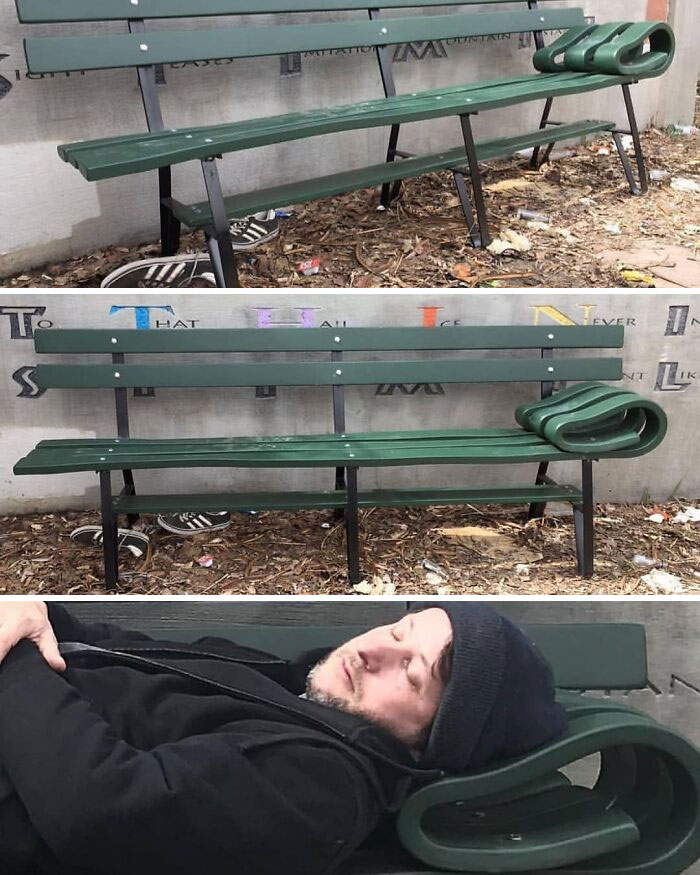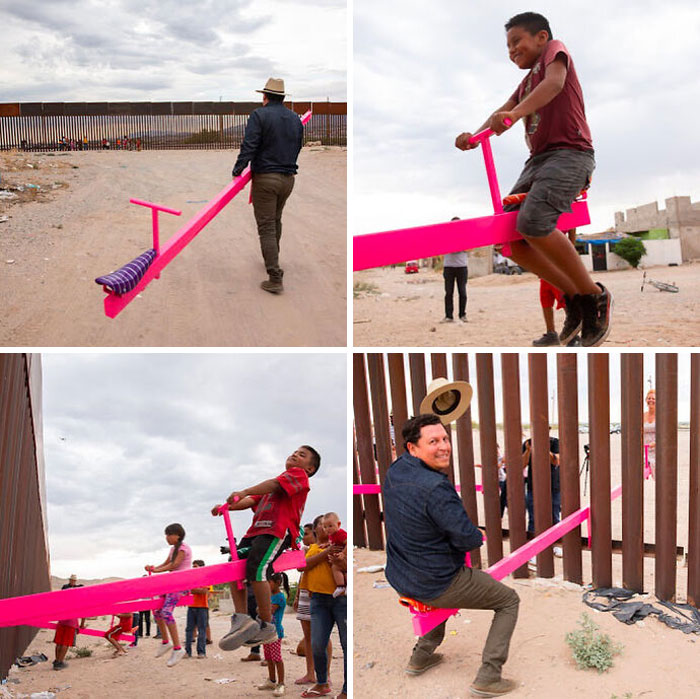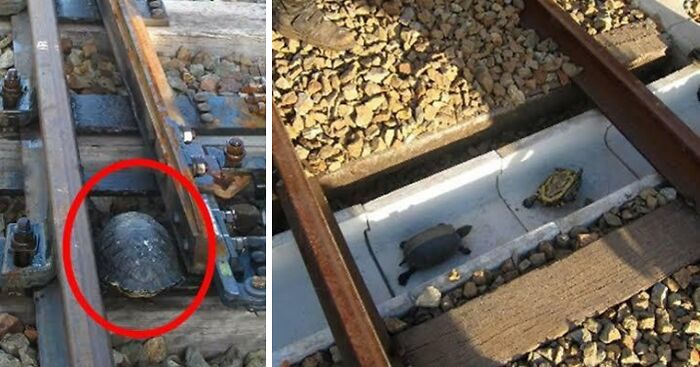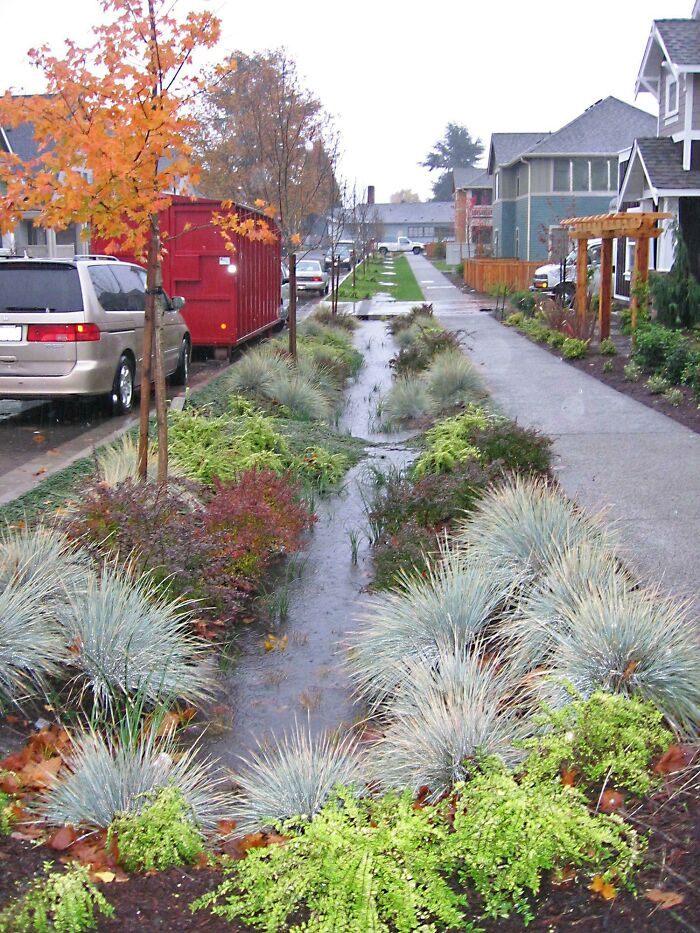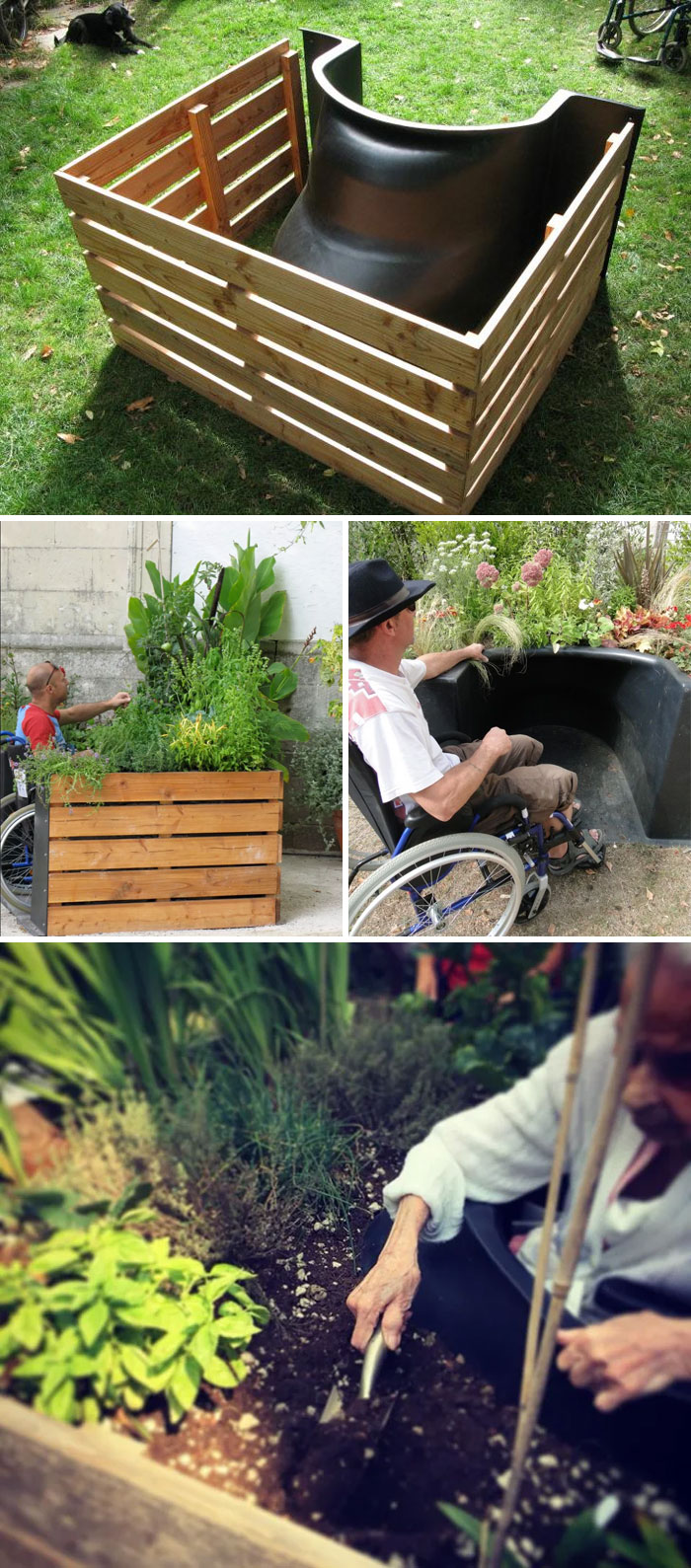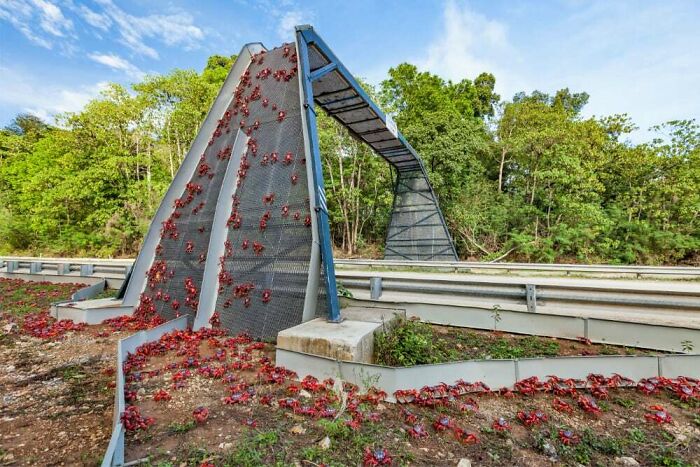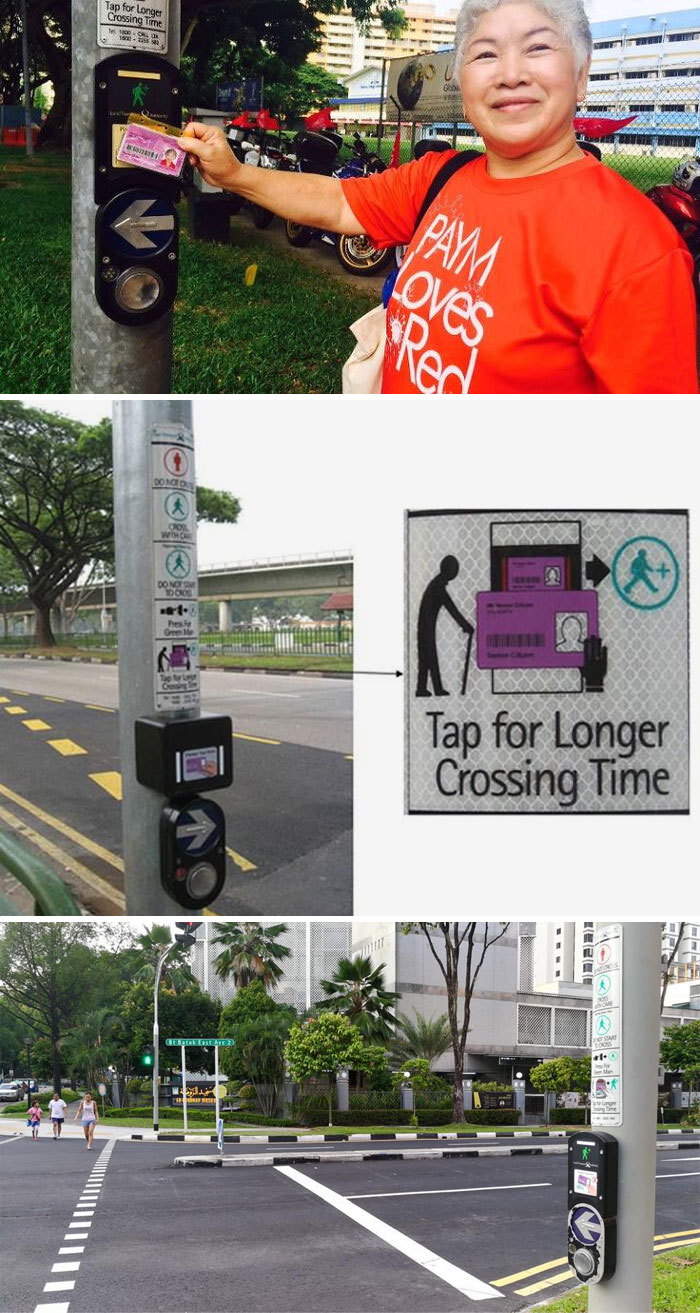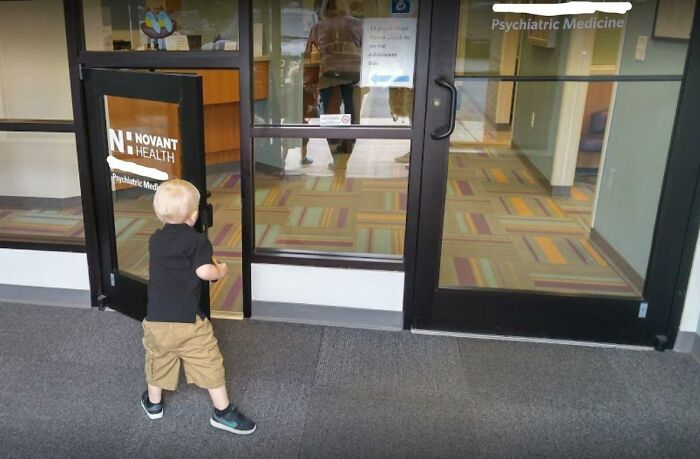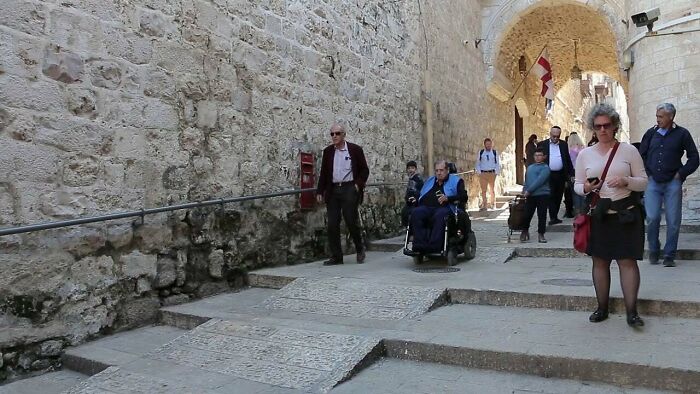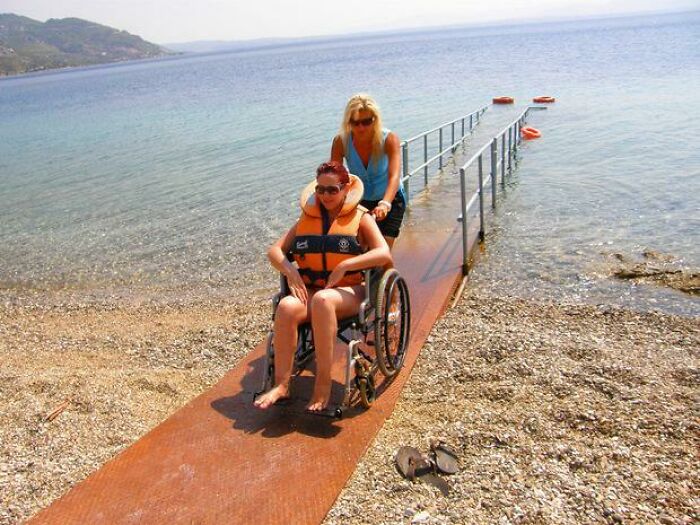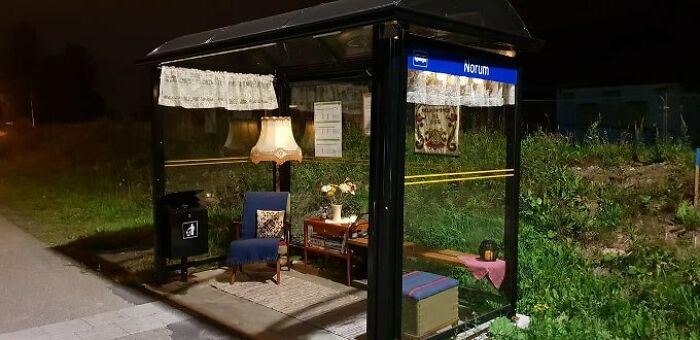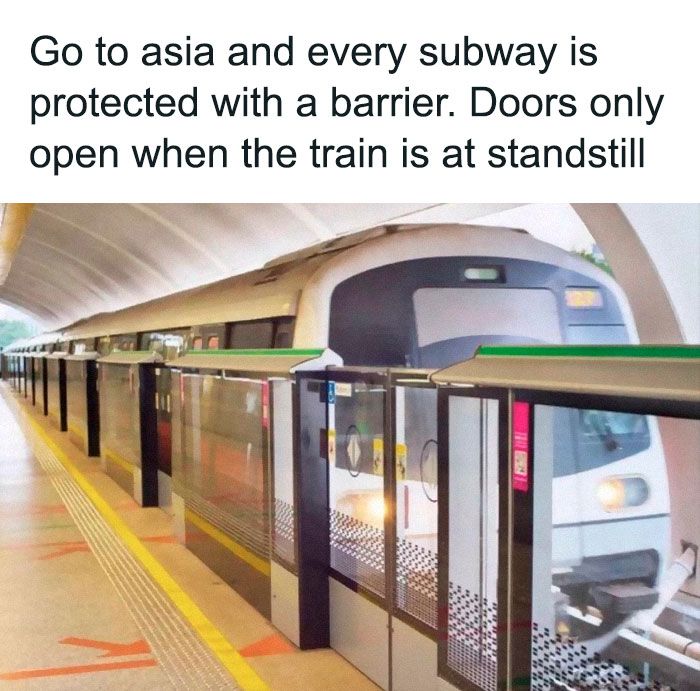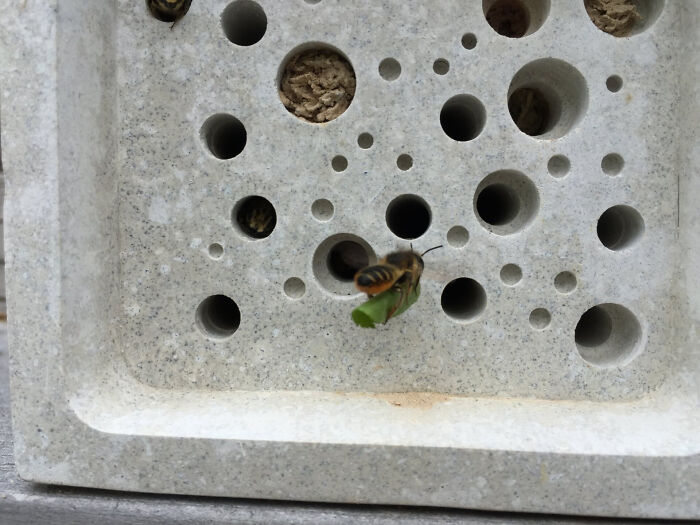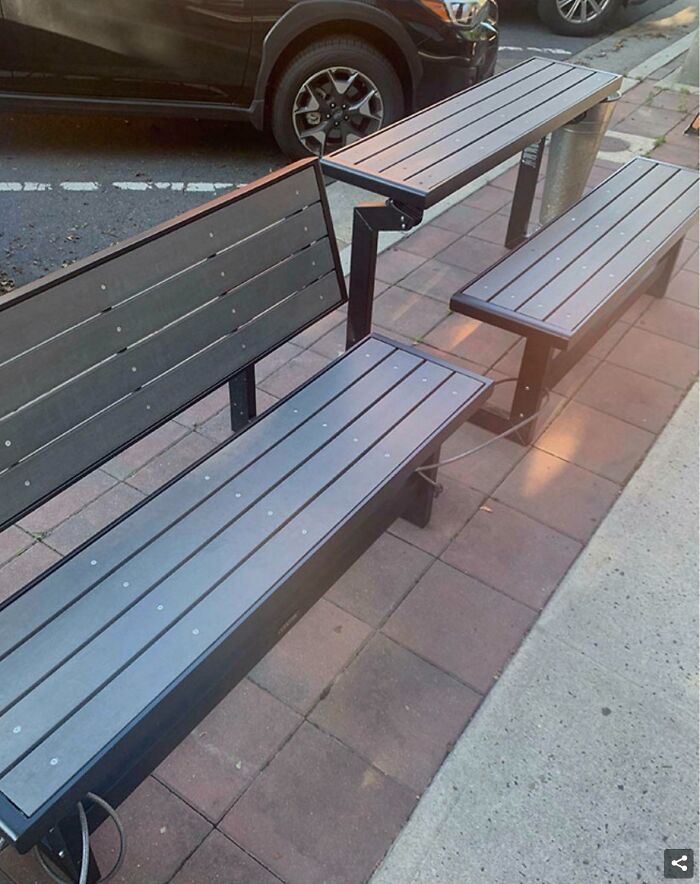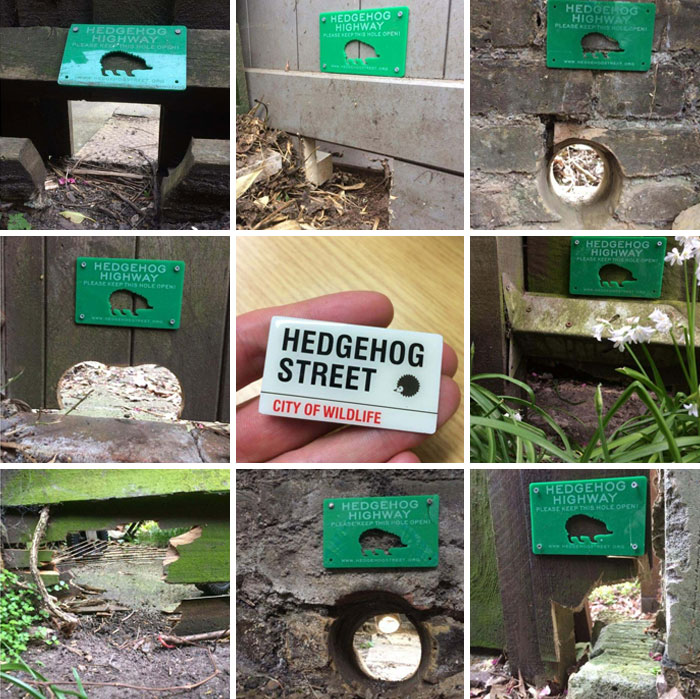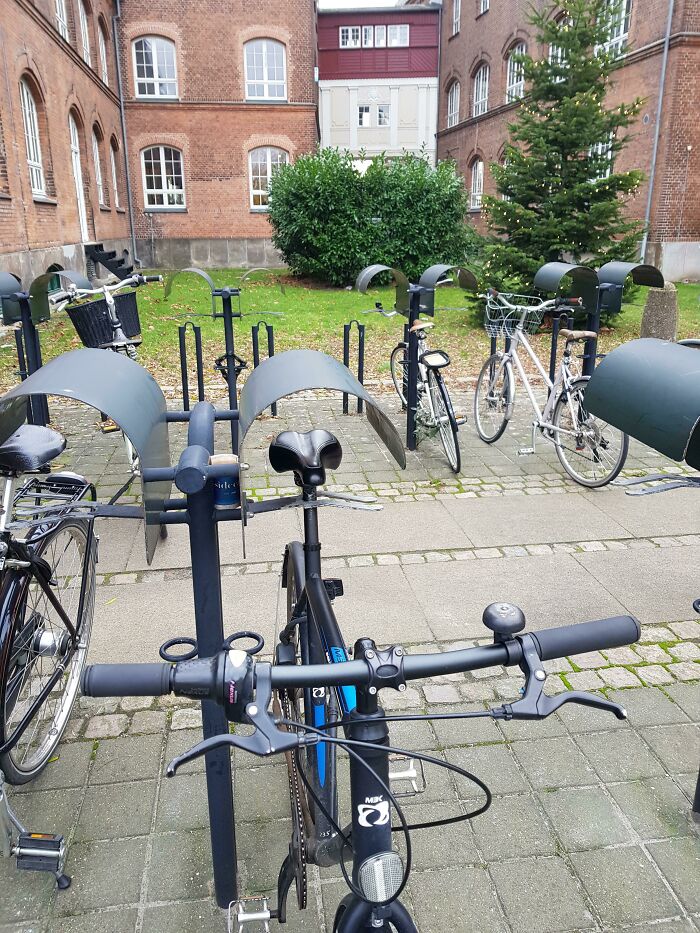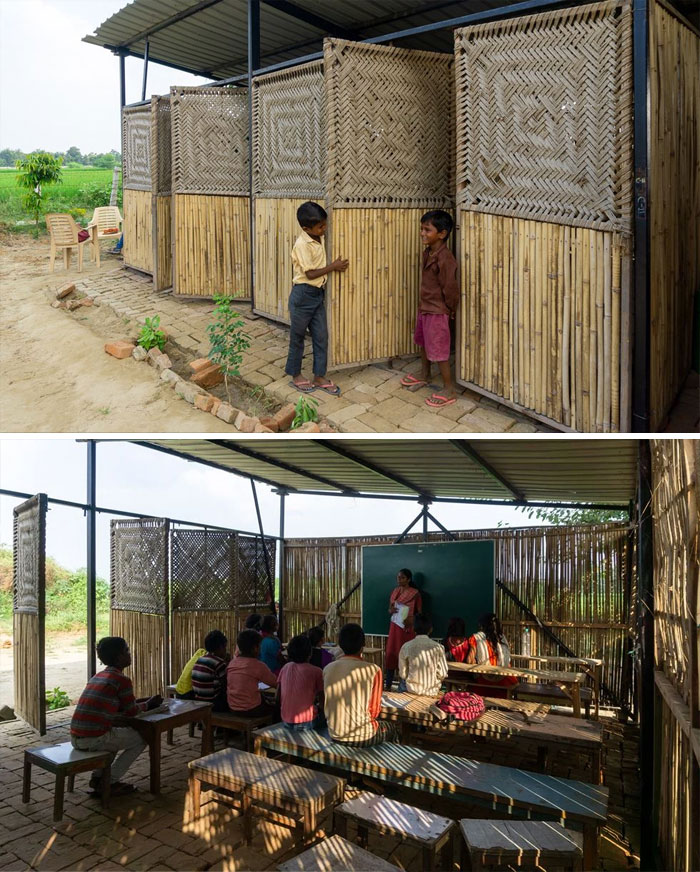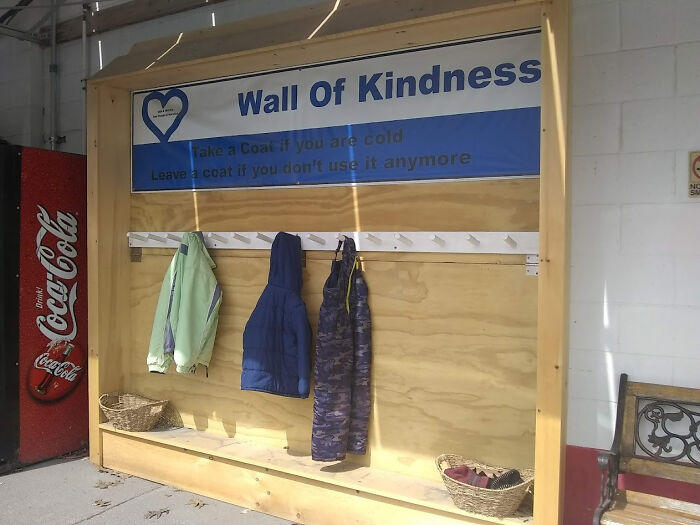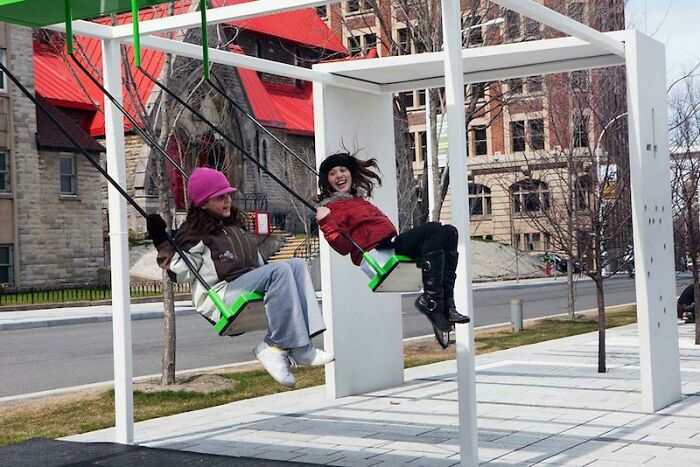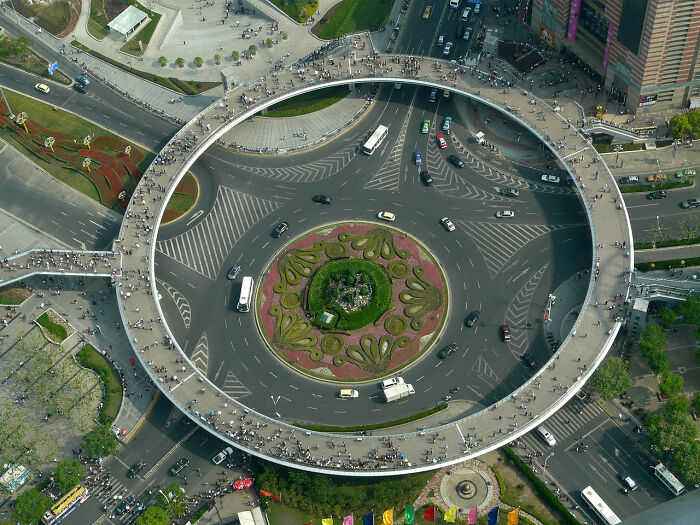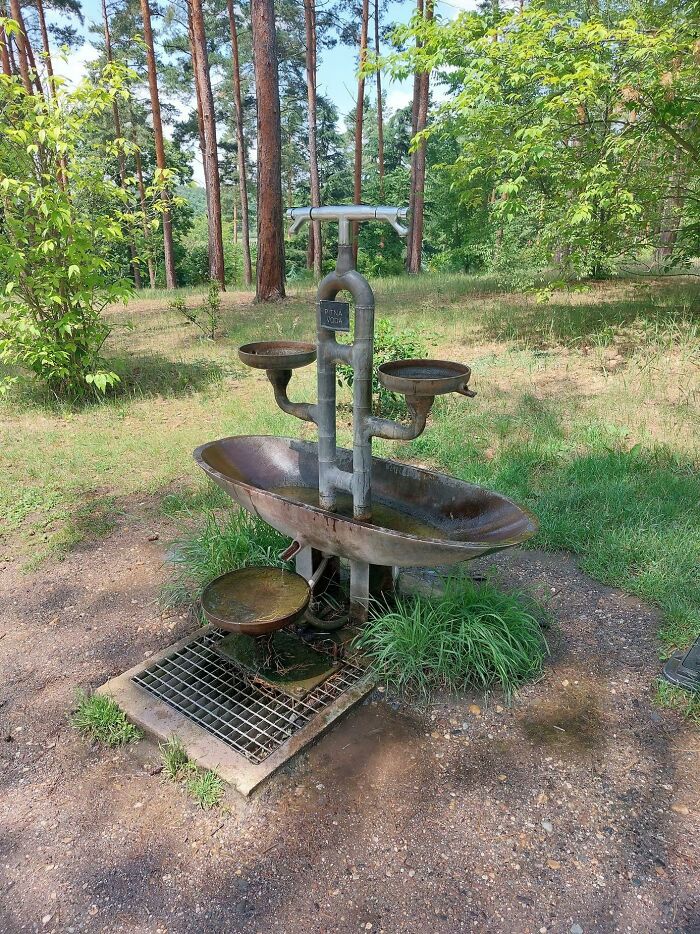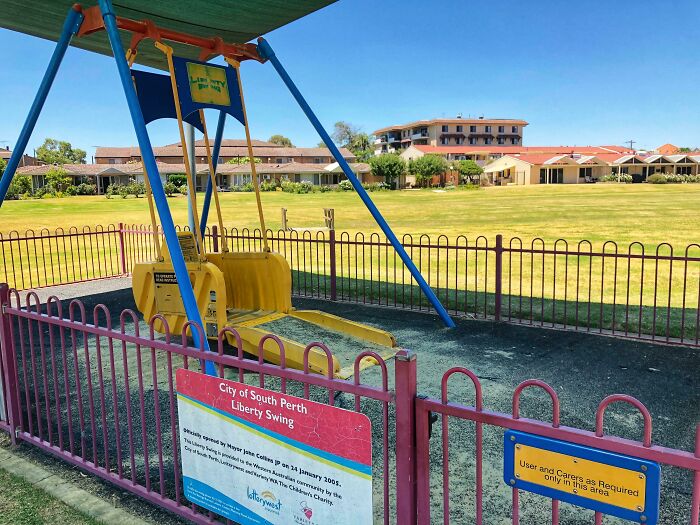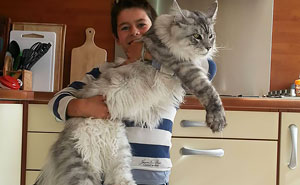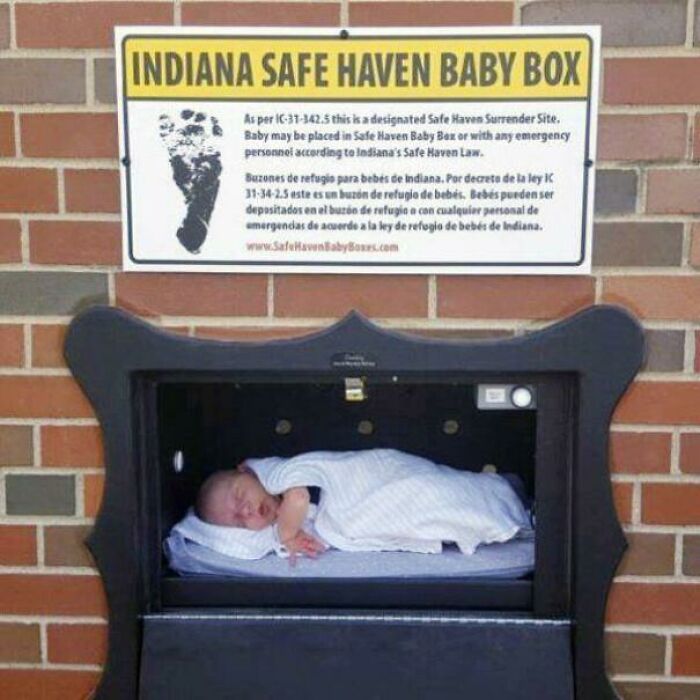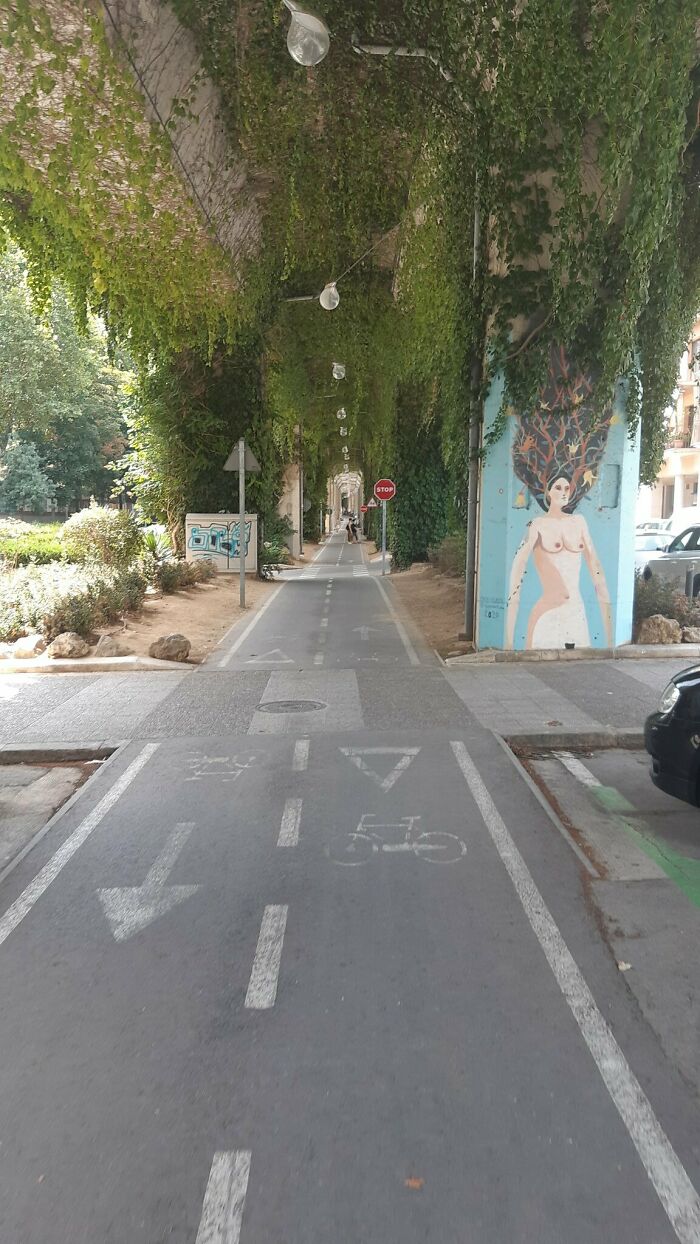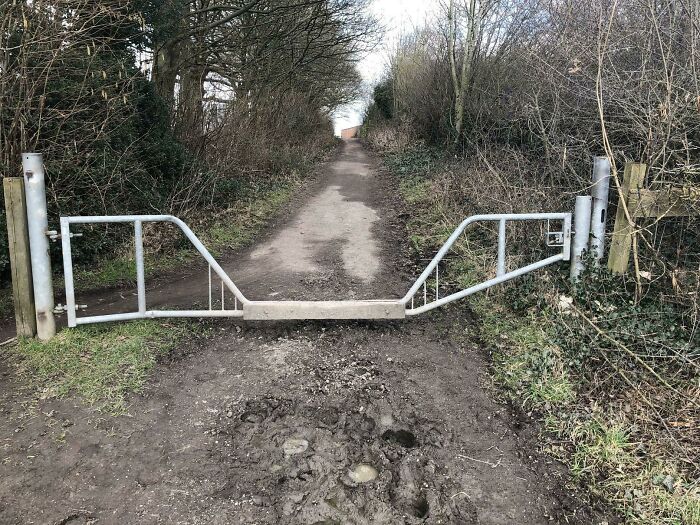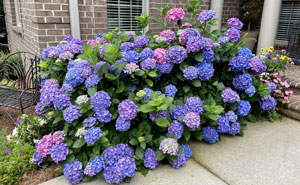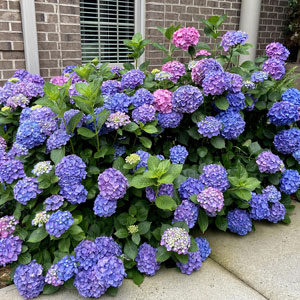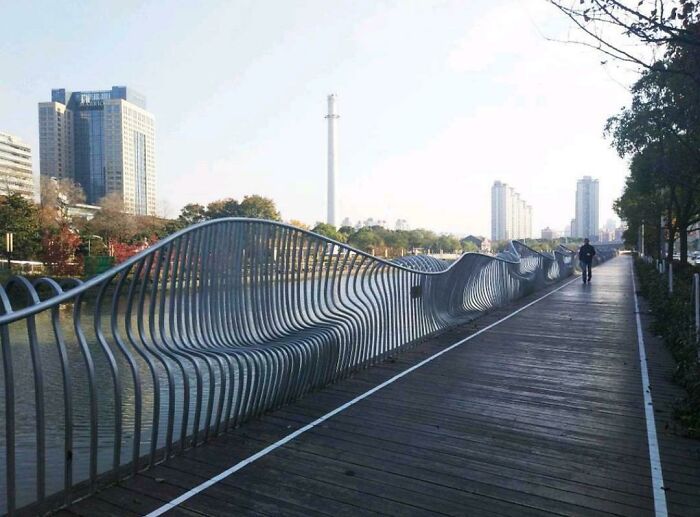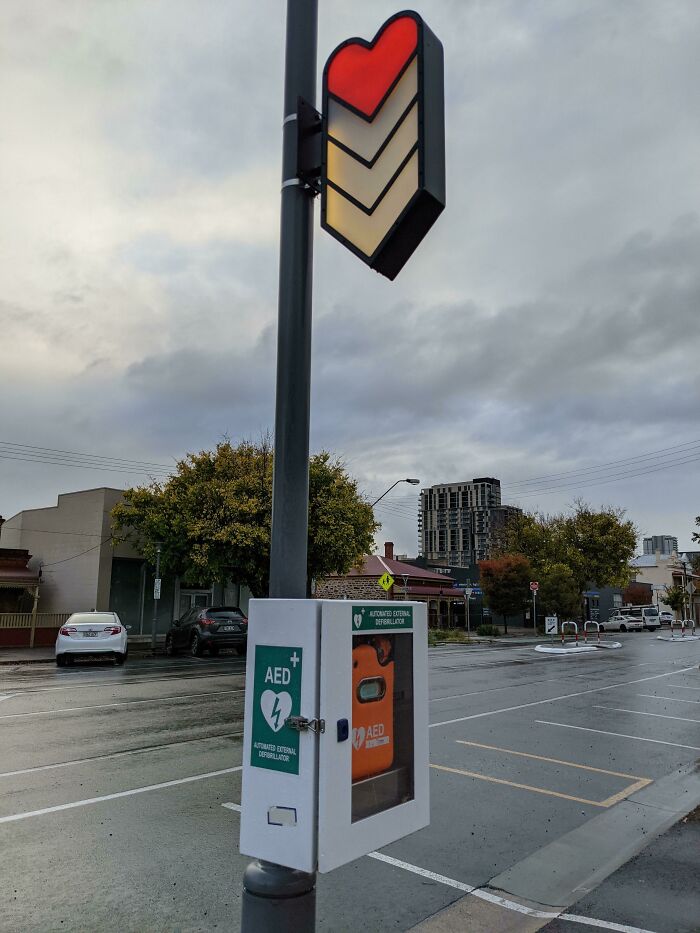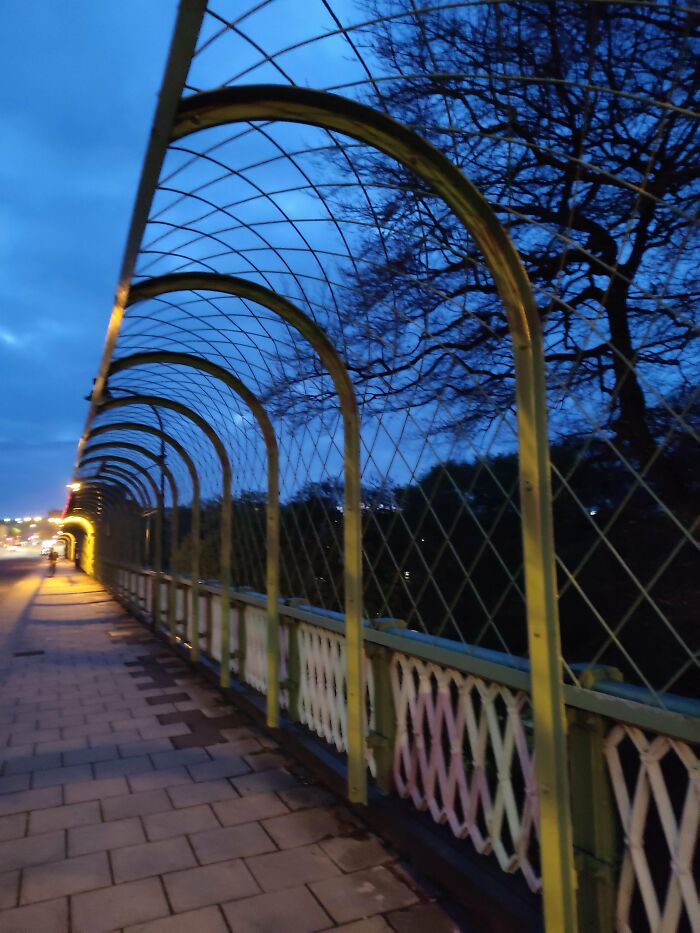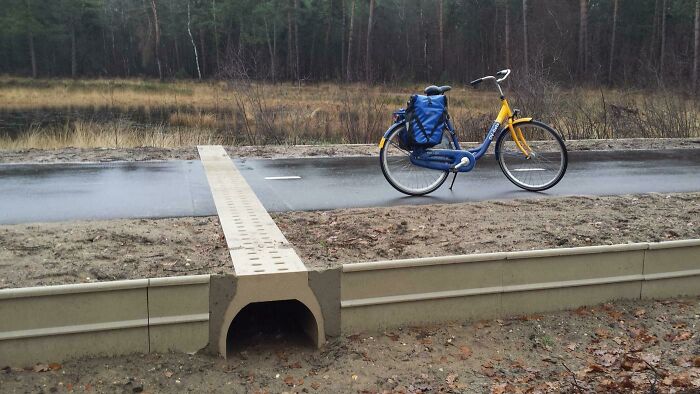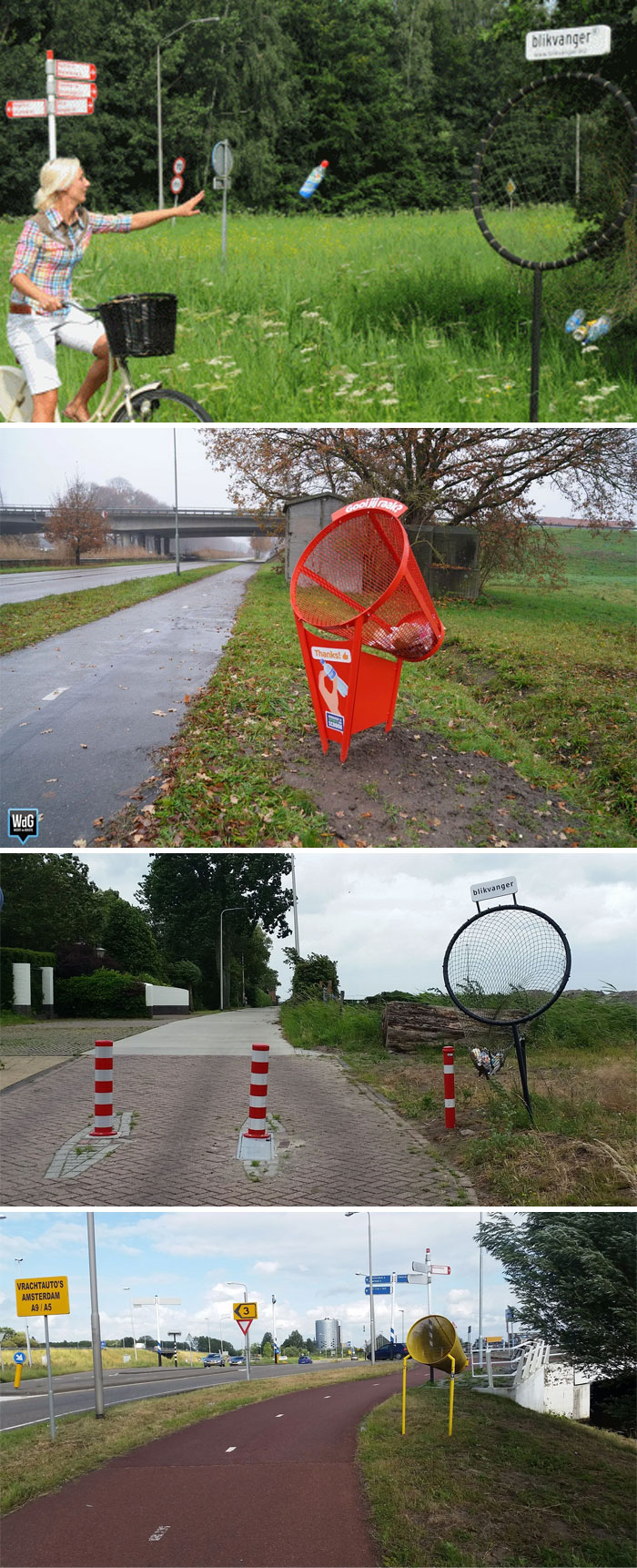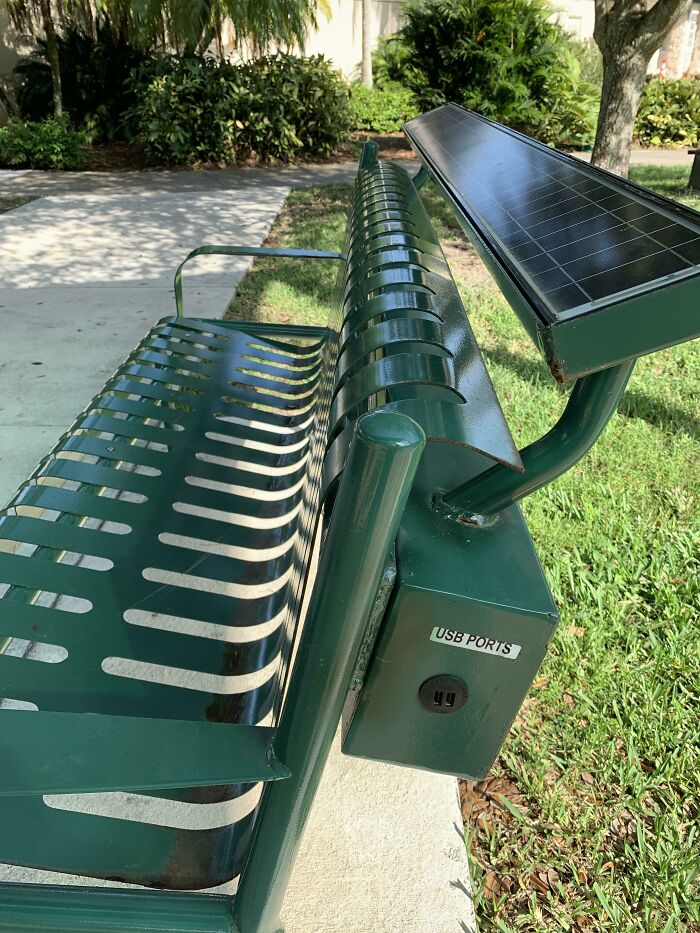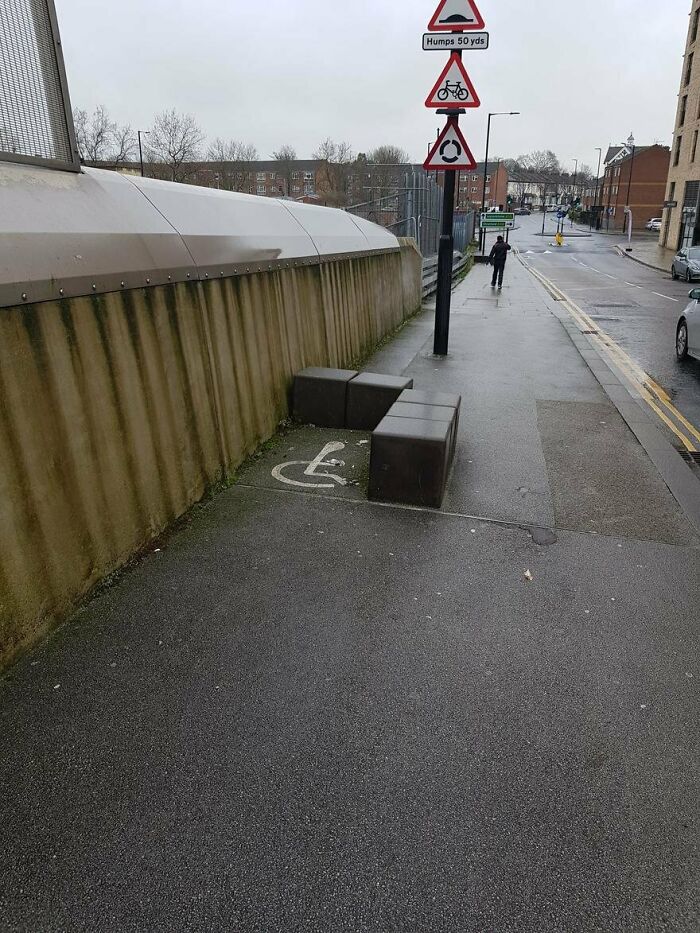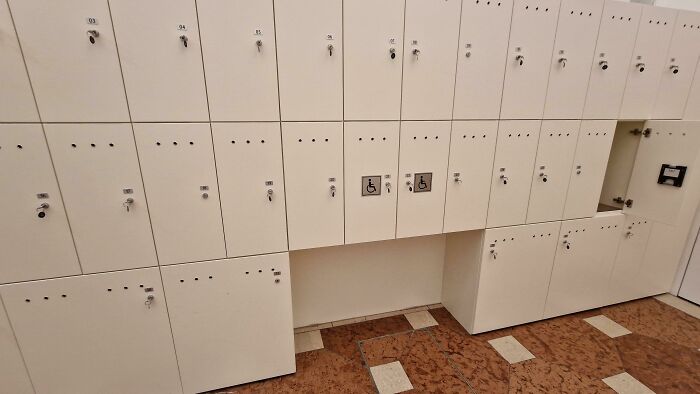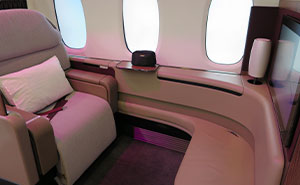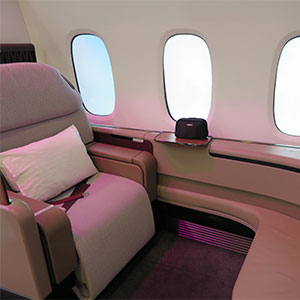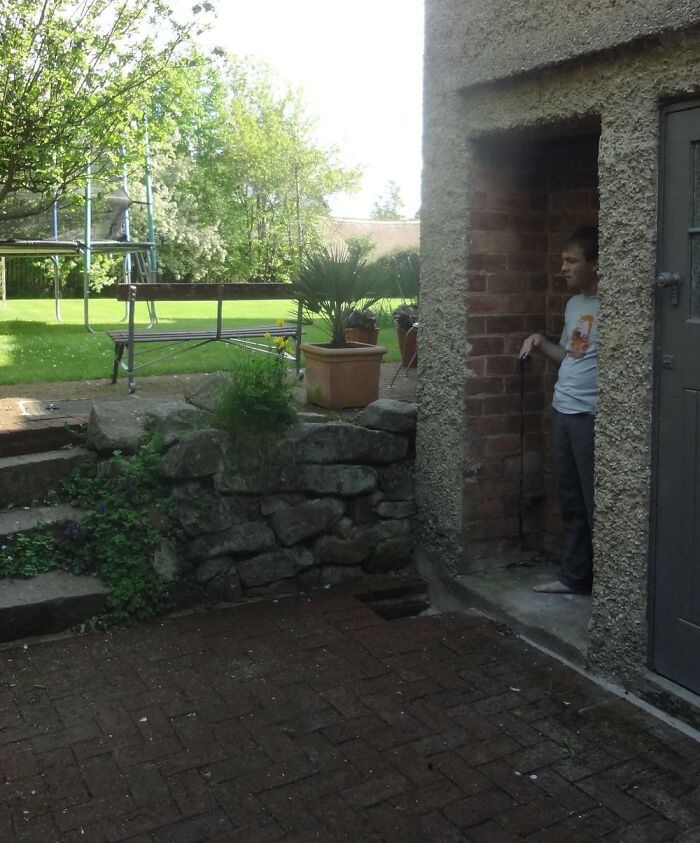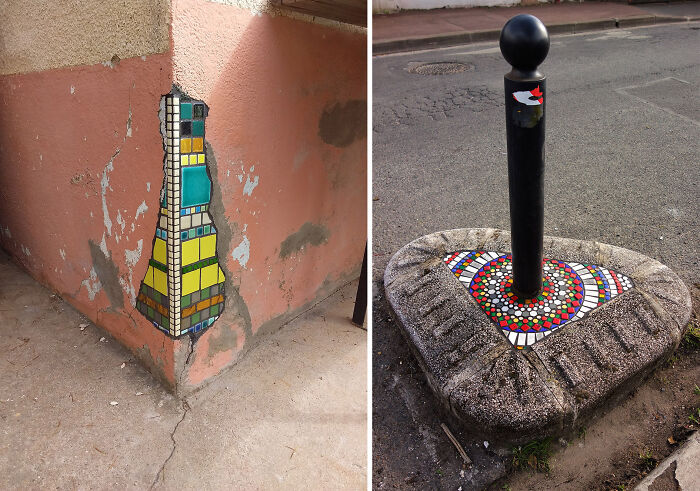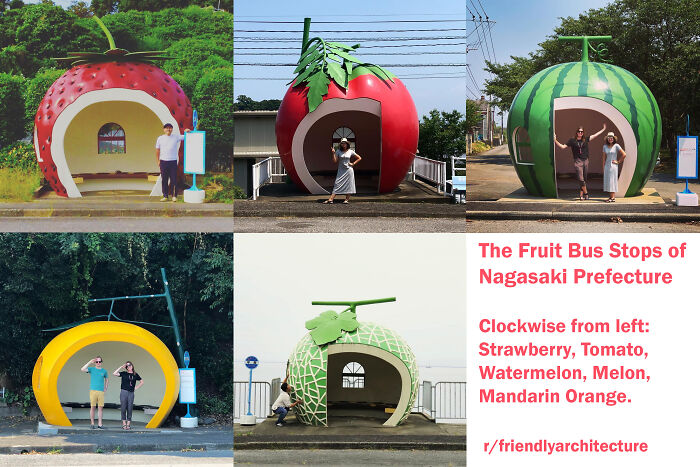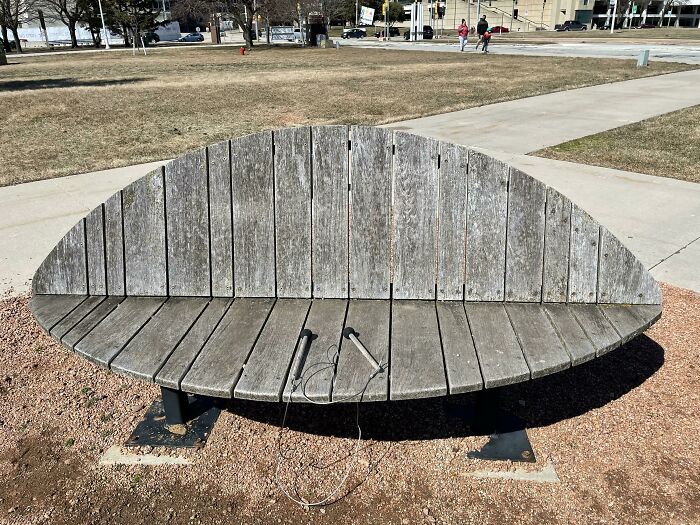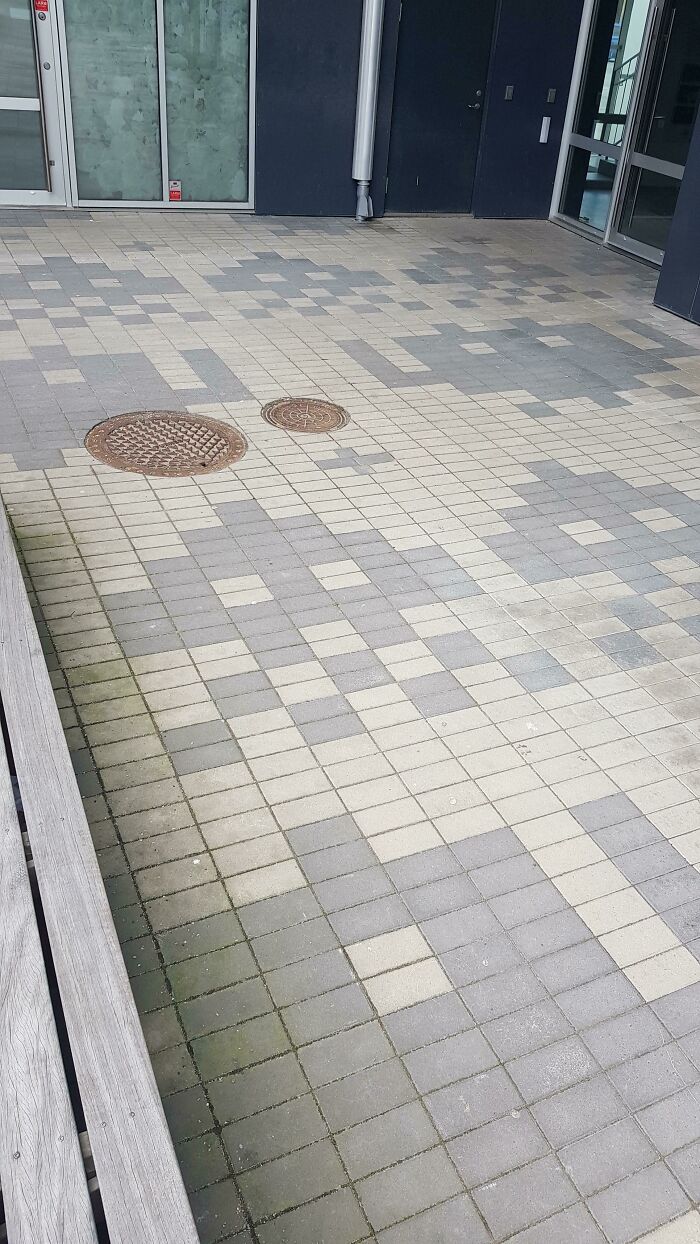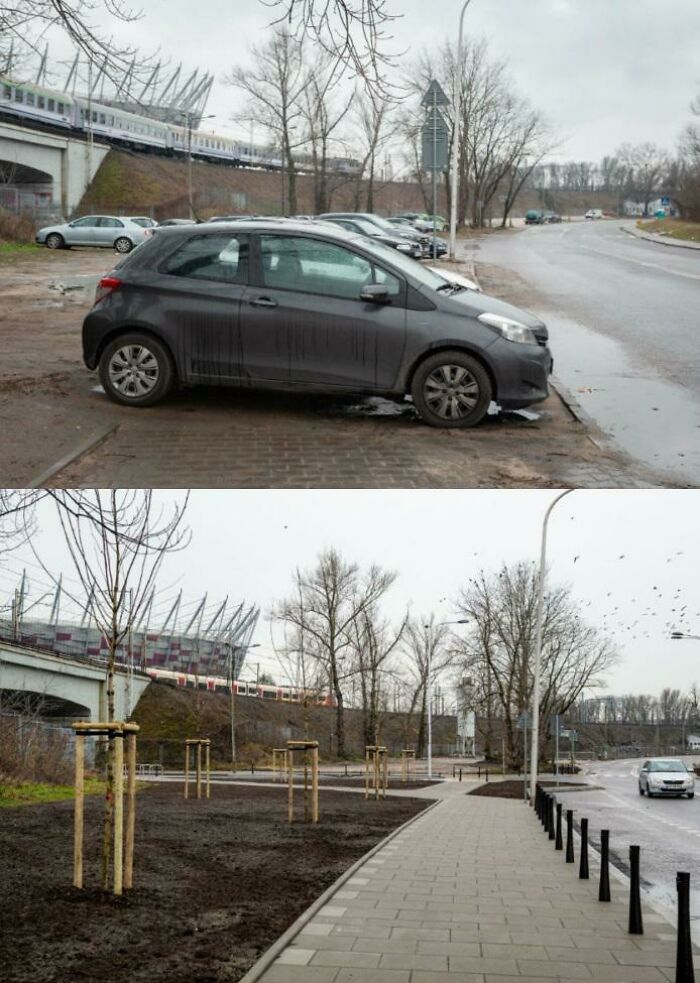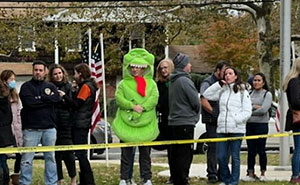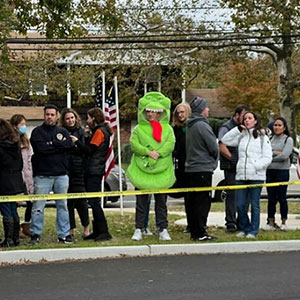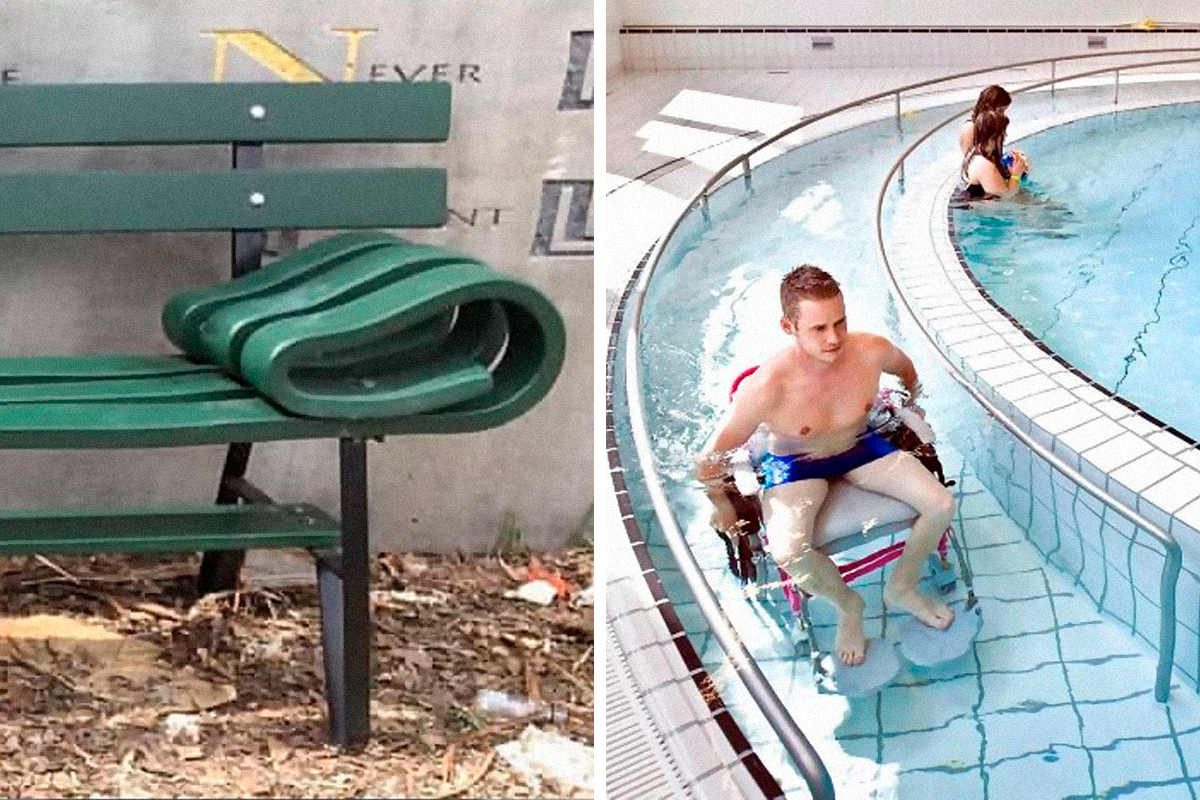
50 Times Architects Outdid Themselves And Came Up With Something So Thoughtful That It Could Only Be Labeled As ‘Friendly Architecture’
InterviewHi there! Howdy! Bonjour! How are you doing today? I hope you’re well! Have a good one!
Being friendly can go a long way. Even if you only have a brief interaction with someone, showing a bit of kindness can make their day and inspire them to spread a little more positivity as well. And contrary to what you might believe, people and animals are not the only ones who can be friendly. Apparently architecture can be too.
Allow me to introduce you to Friendly Architecture. This subreddit celebrates all of the people-friendly places in the world, from beautiful cycle paths to train tunnels that block anyone from falling onto the tracks. We’ve gathered some of our favorite posts from this friendly group, so you too can appreciate the brilliance of these architects who were thinking ahead. Be sure to upvote all of the pics of infrastructure that you would give a hearty “hello!” to if you came across them, and then let us know in the comments where the friendliest architecture you’ve ever encountered was. Keep reading to also find an interview with Honor Hingston-Cox, the creator of Friendly Architecture, and then if you’re looking for another Bored Panda article appreciating great design after finishing this list, we’ve got you covered right here.
This post may include affiliate links.
Wildlife Overpass, Trans-Canada Highway, Banff National Park, Canada. The 38 Passes And Fencing Have Reduced Wildlife-Vehicle Collisions By More Than 80%
To hear more about the background of this friendly page, we reached out to the subreddit's creator, Honor Hingston-Cox, to hear what inspired her to launch Friendly Architecture in the first place. "I've been a fan of thoughtfully built things forever, and particularly since Design Like You Give a Damn by Architecture for Humanity came out back in 2006," Honor told Bored Panda. "In 2010, I heard the RadioLab short about a bus stop for people with dementia in Dusseldorf, and I knew that there just had to be even more good in the world of the built environment. I started seeking out designs that considered specific groups of people or animals," she explained.
"Later I was introduced to the world of Hostile Architecture. This is where the built environment is designed to change the users behavior in a negative way. Hostile architecture is designed to stop people sitting down (think spikes on walls) or lying down (arm rests on benches), or to stop birds nesting ('bird spikes'). I realized that the architecture I was into was about encouraging behaviors, instead of stopping them."
In Norway You Get A Small Amount Of Money For Recycling Bottles/Cans. They're Often Collected By Poor People, Homeless Etc. A Lot Of Our Trash Cans Has These Holders Around Them So People Don't Have To Search Through The Trash To Collect Them
"One day, after getting overwhelmed by the negativity of Hostile Architecture, I started a subreddit to collect all of the good things," Honor says. "I posted a picture of a picnic table designed with an overhang on one side, made to accommodate a person in a wheelchair. The table encourages everyone to sit together. It doesn't stop behaviors, it starts them."
"Slowly people found the sub from my posts as a mod on Hostile Architecture. I think that other people needed a chaser after seeing some of the awful, mean design in the world. I separated the posts into categories of thought and catalogued things that are accessible, social, promote sharing and coexisting with nature, provide shelter, food/water, rest, information, sanitation, or are about saving lives. I also included architecture for Pure Fun."
"It's been amazing seeing it grow and seeing others bring in Friendly Architecture from their world into the sub," Honor told Bored Panda. "It can be hard to find Friendly Architecture, but when I do, I feel so good about the world."
Wheelchair Friendly Sandbox
Since Honor is an expert on the more positive side of architecture and design, we asked her for some of her favorite examples of friendly architecture from around the world. "What's amazing about the sub is finding that there are pockets of friendly architecture everywhere," she said said. "My favorites are hyper-local ideas (like the Dusseldorf bus stop) that could catch on elsewhere if they got the publicity and funding they need. There are the public defibrillators in Adelaide, Australia that can be operated by anyone at any time of day and canopy bridges for wildlife in Anaimalai Hills, India and Longview, Washington. Those are the posts that hope people see and think 'Wow, that could totally work in my neighborhood'."
"Others are major hits already," Honor explained. "Think Little Free Pantries and Curb Cuts, Buddy Benches and over and underpasses for animal populations. Some posts are much more site-specific like a light show in San Antonio that "repaints" the mission buildings as they appeared when painted, or the towers for Chimney Swifts that are placed along their migration routes. These are designs that I hope will inspire brand new projects. There are thoughtful, friendly designers and architects everywhere. Thank goodness!"
Homeless Bench, Vancouver, Canada
This is so very much kinder than the measures designed to prevent homeless people sleeping on benches, or in doorways. It's bad enough people are sleeping rough, they need kindness.
When it comes to the benefits that friendly architecture can reap, Honor says, "Friendly architecture makes life better for all. And it responds to the moment. Cell phone lanes for pedestrians and the social distancing park in Brooklyn show that designers and planners can work together to make life better in the face of something new. Facilitating sharing is another great benefit of Friendly Architecture. In the USA, so many of us have so much, but the infrastructure to facilitate sharing isn't robust. Enter spots to share clothes, beach toys at the beach, electricity for phone charging and even tools for bike repair."
Lastly, Honor added, "Friendly Architecture is really hard to find! It's out there, but it hasn't caught people's attention the way that Hostile Architecture has. Still, I'm super impressed by how many members we have. Being a Friendly Architecture detective is extremely rewarding."
Parent + Child Library Carrel, So You Can Do Your Research And Keep Your Little One Occupied. Fairfield Library, Virginia, USA
I'm glad this is here because I saw this in a negative "dystopian" post from BP in the past when it's a great idea.
Have you ever encountered a building with no wheelchair access or stairs that are so steep and narrow you have to focus on every single one or you’ll lose your footing? Whoever designed those spaces did not have the “friendly architecture” mindset. Maybe they should have taken a look at the Friendly Architecture subreddit before embarking on their projects because they surely would have found some inspiration there.
This online group has nearly 16k members at the moment, and is famous for celebrating buildings or public spaces that were designed in a way that “encourages people to interact with them”. Their about section states that structures shared on the page “may also be beautiful, accessible, supportive, helpful or keep people and other living things safe from harm”. And the group only has one rule: be friendly. A quick scroll through their community shows a variety of genius designs and spaces that are just begging to be greeted and invited over for dinner.
It's Not For People But It's Still Friendly
While this page focuses mainly on architecture that is friendly in terms of inviting citizens to use it, there are a variety of ways that a space can be kind, including how it treats the environment. The more sustainable a structure is, the friendlier it is to everyone, including people, animals and the planet. To gain some insight on environmentally friendly architectural styles, we consulted a piece that Terri Briseno wrote for How Stuff Works.
One genius eco-friendly housing solution some people have embraced is turning a space that was previously something else into housing units. For example, the Keetwonen student dorm complex in Amsterdam is comprised of former shipping containers that have been transformed into apartments. This is a great way to reduce, reuse and recycle and offers an affordable and innovative solution for students in need of a place to live. It’s a creative solution, but it definitely qualifies as a friendly one as well.
They Put Rails Under The Benches In This Park So You Can Always Be In The Shadow
Downsizing and moving into a tiny house or small apartment is another great friendly solution to your housing needs. While it may take some adjusting to at first, living in a small space typically helps homeowners save much less on their utility bills, making this solution budget-friendly as well. This has become a popular route for many people living in large, crowded cities to take, but it's becoming more common all around the world. By using less resources in your home, the environment will thank you for this friendly gesture, and your wallet will thank you when it’s feeling fuller at the end of the month.
On a similar note, taking advantage of multi-family units can also be a great eco-friendly alternative to living in a single-unit home. According to a study sponsored by the U.S. Environmental Protection Agency, focusing on building multifamily and attached housing units is one of the best ways to minimize energy consumption in many communities. Spaces that share walls hold in heat and increase efficiency, so becoming more friendly and open-minded to sharing your space with neighbors might also help your family become more eco-friendly as well.
Pool And Water Slide, Egmont Højskolen ("Folk High School"), Western Denmark
The bottom of the pool can also be raised or lowered to fit the user
In Case This Counts: Braille On The Rail To Describe The View
The way a space makes us feel can have a great impact on our mental and emotional states. And according to Teknion, there are several aspects architects need to consider when designing a “people friendly space”. The first step they suggest is being sure to incorporate nature. This can be done by allowing for ample natural light to flow through a space, using glass to define enclosed spaces to allow for a more open feel and making sure the windows have a view of trees, plants or the sky. Even the materials and colors in a space can be designed with nature in mind, utilisting organic shapes, peaceful colors and wood or stone elements. We tend to feel extremely at ease when surrounded by nature, so why shouldn’t we want to emulate that feeling when indoors?
Sympathetic Architecture
Teetertotters Slotted Through The U.S.-Mexico Border Wall By Ronald Rael And Virginia San Fratello
Turtle Tunnels In Japan, Protecting The Turtles Crossing Train Tracks And Stopping Trains From Derailing Due To Turtles!!
Another method Teknion recommends for creating a friendly space is to make sure the design “promotes movement”. Particularly when it comes to an office space, they explain that the ideal layout will encourage organic casual meetings through open spaces, lounge chairs and sofas, attractive stairwells and low tables that allow for relaxed postures. Adjustable furniture that allows workers the option of whether they want to sit or stand can also be great in an office setting. Even having walls with writable areas or boards where colleagues can pin memos encourages people to get involved and feel like more of a community. They can share ideas face to face or on the wall, which provides one more reason to get up from their desks and take a walk every now and then. A smart designer makes sure that their space is friendly itself and inspires people to be friendly to one another.
Bioswale, Seattle Wa. (A Channel To Concentrate, Clean And Move Stormwater)
Wheelchair Accessible Gardening. Used For Garden Therapy, Rehab, Hospice. Developed In Douvres-La-Délivrande, France
Crab Migration Bridge, Christmas Island, Australia
The person in charge of cleaning up after this will be very crabby indeed...
Another important feature of a friendly space is one that minimizes disruptions. Some people enjoy chatting and making small talk, but for others, these distractions can be frustrating and send certain individuals into sensory overload. It is best to have some places designated for chatter and discussions, while other places are reserved for peace and quiet. “As the world continues to urbanize and more people work longer hours indoors, often at a computer, it becomes ever more important to employ design to reduce stress, enhance creativity and improve mental and physical health,” Teknion explains. “We need design that connects us with nature, that supports our biological need to move and our emotional need to occasionally withdraw to think or rest as much as we need the means to draw people together and connect their working thoughts and ideas.”
Green Man+, A Card & Traffic Light System To Give People More Time To Cross At Intersections, Singapore
Wonderful. A simple system to allow people to cross without worry.
These Public Benches Are Reversible, So You Can Choose To Look At People, Or Boats
Mini Door At Child's Doctor's Office, Neat Idea!
Another common theme celebrated in the Friendly Architecture page is places that are very accommodating for people with disabilities. Of course, wheelchair users and others with disabilities should not have problems visiting anywhere, but the unfortunate reality is that some spaces have not been designed with them in mind. That’s frustrating to hear when you realize that in the UK alone, there are over 13 million people living with disabilities. Architects have the power to make these individuals’ lives much easier or much harder, so it is vital that they ensure easy access and “friendly design” for everyone. As architect Ian Fulgar writes on his blog, “Accessibility in architecture improves cognition, self-esteem, and life satisfaction for those who live in these environments, potentially improving public health significantly. Individuals and organizations can benefit from accessible design practices, which boost productivity, foster creativity, and make it comfortable for people to participate in their communities.”
Old City, Jerusalem Added 4km Of Wheelchair-Accessible Routes In 2019 (And Cleared It With Unesco)
Brilliant. These changes make such a difference to the lives of wheelchair users.
Super-Accessible Waterfront, Sirens Beach, Greece
Another simple change to make a world of difference to people like me in wheelchairs. Like I said in the photo above, just because I'm in a wheelchair, doesn't mean I don't want to explore the world and go out. I wish these would appear on more beaches!
This Bus Stop Near My Home In Norway
Ian goes on to note some famous examples of excellent architecture in terms of accessibility. One of which is the Hazelwood School in Glasgow, Scotland, which is actually featured on this list. The school was designed incorporating senses such as smell, taste and touch to create increased awareness for sensory impaired children and allow them to have greater independence than most buildings permit. The school was even the first in the UK to receive a DesignShare Honor Award and is one of the most renowned innovative learning institutions in the world.
In Asia Nobody Has To Worry About Falling Into The Subway Tracks
Bee Bricks: Bricks With Holes For Solitary Bees
These Benches That Turn Into Tables
My aunt and uncle have these. It’s realy nice cuz while the kids play they can watch or the kids can rest on the bench but then for lunch we fold them down and can eat.
RMJM also notes on their website the importance of keeping accessibility in mind when designing a space. “But inclusive design does not refer exclusively to whole buildings, it also includes anything from appliances to furniture and interiors,” they explain. “It could be, for example, the case of gender-neutral public bathrooms or intuitive furniture for hearing-loss impaired people. While there are many discussions around the spaces designed for people with reduced mobility or visual impairments, the ones created for people who suffer from hear-loss are not as noticeable.”
“There are various considerations to make when designing a space for people with hear-loss impairments," they go on to note. "One of them is the layout of the room. Considering a wide or circular layout rather than linear allows all the participants to see each other, and thus it is possible to read each other’s speech. Ramps, graphic security elements and automatic doors are equally important to guarantee the safety of the users while walking and moving.”
Hedgehog Highway (Dolly Parton Called These Out This Week), UK
Cover For Bicycle Saddle So It Doesn't Get Wet When It Rains
I think, it's more like to protect from the sun's heat..
Modskool - Design Museum Winner For Best Architecture 2020, India
ModSkool is a school that is designed to be easily erected and dismantled in response to forced evictions of farming communities on the floodplains of the Yamuna river in India.
First built in 2017 in less than three weeks by students, school staff, parents, and local volunteers, the school was dismantled one year later due to land-ownership issues. The new school, relocated further south, was held together with the form of weave used for a charpoy, a multifunctional piece of furniture traditionally used as a daybed.
Friendly design sometimes requires thinking outside of the box, but it is always worth it when a space becomes warm, inviting and accessible. We hope you're enjoying this list of people-friendly places and spaces, and we especially hope that wherever you live is full of infrastructure that could be featured here too. Be sure to keep upvoting your favorite pieces of design, so your fellow pandas see them too, and then let us know in the comments what the friendliest piece of architecture you've ever witnessed was. And if you'd like to see even more of these innovative pieces of design, you can check out the Friendly Architecture subreddit right here.
Wall Of Kindness, Norwich, Vermont, USA
A Bus Stop With Swings
Circular Footbridge Over Roundabout, Shanghai
This Drinking Fountain Allows You To Gill Your Bottle, And Saves The Extra Water For Passing Dogs
Ah yes, perfect spot to GILL your water bottle 😌 EDIT: That was sarcasm!!!
Australian Wheelchair Swing!
Fantastic. It's get seeing more spaces being accessible for people with disabilities.
Safe Haven Baby Boxes
Not sure if this is same as baby boxes in CZ, so I'd try to explain our concept. They are installed on walls to hospitals or some public buildings. They have some opponents and enthusiasts as well. People, who got in troubles while not being able to take care of the child, can put it there, it is safe, warm...and when the door is closed, it rings the alarm for somebody inside (usually a nurse or someone like that), who comes for the child, they do examination, provide first aid if necessary and provide care. No questions asked, completely anonymous. It is sad, but these baby boxes saved alredy tens of lives and gave possibility to be adopted for children
A Friendly Urban Cycle Path In Girona
This Gate Allowing Horses And Pedestrians Not Cars
A Bridge Providing A Bench In The Fences In Shanghai
Public Defibrillation Station, Adelaide, Australia
This Anti-Climbing Fence On The" S*icide Bridge "(Colloquially) In A Small Town England. There Are Also Signs With Suicide Hotlines On Them. Not A Fun Part Of Architecture But Definitely Helpful/Saving Lives
i once planned those fences at a bridge . we had to be SUPER sensible about the topic. an agency that also runs a suicide hotline warned us: if the project becomes public before we're finished, there gonna be a lot of people jumping before we install the fences (because they gonna use the last chance they see to do it)
Amphibian Tunnel, Cycle Highway Of Eindhoven, Netherlands
Wonder how quickly also the cranes learns how to use these as food vending machines :D
Trash Cans For Cyclists (Blikvanger), Netherlands
Solar Park Bench With USB Charging Ports
Wheelchair Resting Spot On A Long Hill. Also A Bench In A Pinch
These Two Coin Lockers That Are Easily Accessible In A Wheelchair, Austria
Recessed "Pause Space" For Those With Asd Providing An Opportunity To Control The Amount Of Incoming Information, UK
Earthships, Passive Solar Earth Shelters Around The World
Tiled Patches In Cracked Pavement, Lyon, France (By Ememem)
The Fruit Bus Stops Of Nagasaki Prefecture (Designed To Showcase The Agricultural Output Of The Region)
This Bench Also Works As A Xylophone. Also, No Dividers!
The Tiles Around Our Apartment Complex Is Made Up Like The Enemies In Space Invaders, Sweden
Giving Back To Pedestrians!
Note: this post originally had 83 images. It’s been shortened to the top 50 images based on user votes.
It really shows that with a little consideration, it's not hard to make things more accessible!!
Our downtown library is 5 stories high and has some great features like these built in during a recent renovation! Most of the roof is now covered with long planters filled with wildflowers and grasses and the planters have built in benches. Also, in the children's reading room they added a lot of features including a slide down to the lobby level
It really shows that with a little consideration, it's not hard to make things more accessible!!
Our downtown library is 5 stories high and has some great features like these built in during a recent renovation! Most of the roof is now covered with long planters filled with wildflowers and grasses and the planters have built in benches. Also, in the children's reading room they added a lot of features including a slide down to the lobby level
